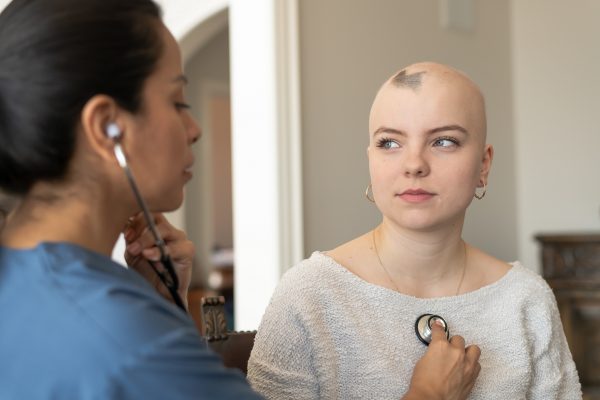
The results of the ZUMA-12 trial indicate considerable activity of axicabtagene ciloleucel (axi-cel) as first-line therapy for large B cell lymphoma (LBCL). These findings were published recently in the journal Nature Medicine.
Despite currently available standard first-line chemoimmunotherapy treatment, the clinical outcomes of LBCL patients remain poor. Researchers from the University of Texas MD Anderson Cancer Center have evaluated the efficacy of axi-cel, an autologous anti-CD19 chimeric antigen receptor (CAR) T-cell, as a new first-line treatment option for LBCL patients.
The phase-2, single-arm, multicenter, ZUMA-12 study enrolled 40 patients with high-risk LBCL to evaluate the efficacy of CAR-T cell therapy, axi-cel as part of first-line treatment. The majority (95%) of patients have stage III/IV disease, 25% had double or triple hit status, and 78% had an IPI score ≥3. The study’s primary outcome was complete response rate (CRR), and secondary outcomes included objective response rate (ORR), duration of response (DOR), event-free survival (EFS), progression-free survival (PFS), and overall survival (OS).
In the efficacy-evaluable (n=37) patients, 78% experienced complete response (95% confidence interval (CI), 62–90) and 89% had ORR ((95% CI, 75–97). After a median follow up of 15.9 months (data cut-off), 73% of patients had an ongoing response. However, the median for DOR, EFS and PFS were not reached. No treatment-related events (TREs) of grade 5 were observed. However, grade 3 TREs such as cytokine release syndrome (CRS) and neurologic events occurred in three (8%) and nine patients (23%), respectively.
The findings of the ZUMA-12 trial demonstrate the effectiveness of CAR-T cell first-line therapy for LBCL patients.
Reference